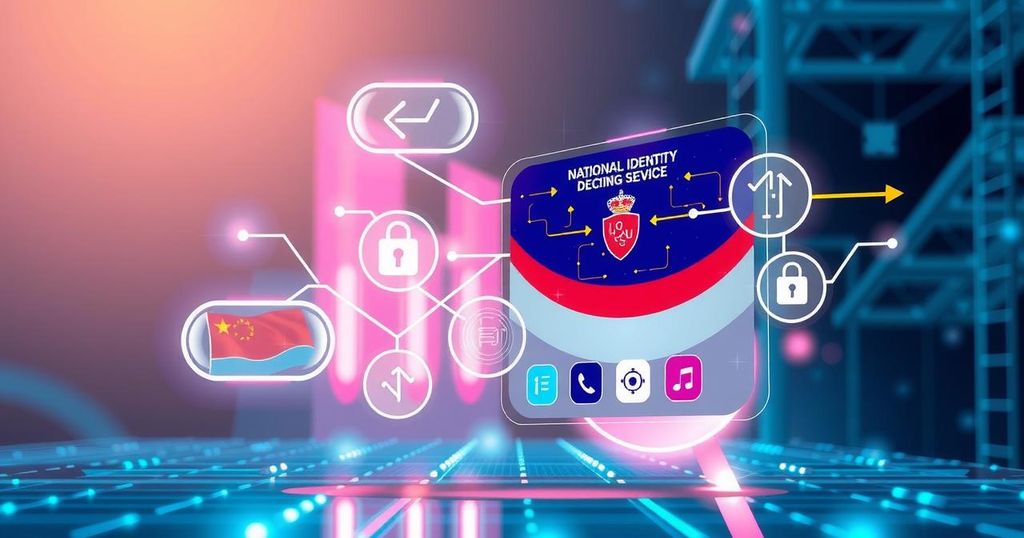Ghana’s National Identification Authority is set to enhance the Ghana Card, linking it with mobile money and banking services to foster financial inclusion. The acting CEO, Yayra Koku, outlined various functionalities including usage as a driver’s license and for passport applications. The NIA also stresses the importance of biometric verification to combat identity theft, reinforcing public trust in identity systems.
Ghana’s National Identification Authority (NIA) plans to enhance the functionality of the Ghana Card by making it a multipurpose identification tool. This initiative aims to promote financial inclusion and streamline access to government services. The acting CEO of NIA, Yayra Koku, highlighted that the card will be linked to mobile money services and banking accounts, aligning with its original design to facilitate various transactions.
In his recent communication on social media, Koku explained the envisaged integration of the Ghana Card into everyday transactions. It is proposed that users could link their Ghana Card to mobile money and bank accounts for seamless payments, eliminating the need for vendors’ phone numbers. The card could also serve as a driver’s license, allowing for easier authentication without visiting the Driver and Vehicle Licensing Authority (DVLA).
Moreover, he envisioned users applying for passports online using their Ghana Card, followed by convenient collection or delivery. Additionally, Koku mentioned the possibility of linking the card to toll booth applications for efficient payment processing. He provided a vision for the future where users can replace lost cards seamlessly, with instant printing available at designated booths.
Koku reinforced that the functionalities of linking the Ghana Card with banking services have always been part of its design. He stated that once activated, the card can function as both a debit and prepaid card, enhancing payment methods for users.
In response to rising identity theft concerns, the NIA emphasized the necessity of biometric verification for Ghana Card authentication. They advised institutions to abandon non-biometric methods such as visual inspection and lookup lists due to their ineffectiveness in confirming identity accuracy.
To combat these challenges, the NIA has developed a sophisticated Identity Verification System Platform (IVSP) that ensures biometric verification of Ghana Card holders against the National Identity Register. This system is vital for ensuring security, accuracy, and public trust in identity verification processes. Currently, over 17 million Ghanaians possess the Ghana Card, with efforts underway to extend issuance to children.
The Ghana National Identification Authority is on the verge of transforming the Ghana Card into a comprehensive multipurpose identification solution, thereby enhancing financial inclusion and government service accessibility. In light of the increased risk of identity theft, the NIA advocates for biometric verification as an essential security measure. This progressive initiative promises to streamline various transactions while fortifying identity verification processes across the nation.
Original Source: www.biometricupdate.com






